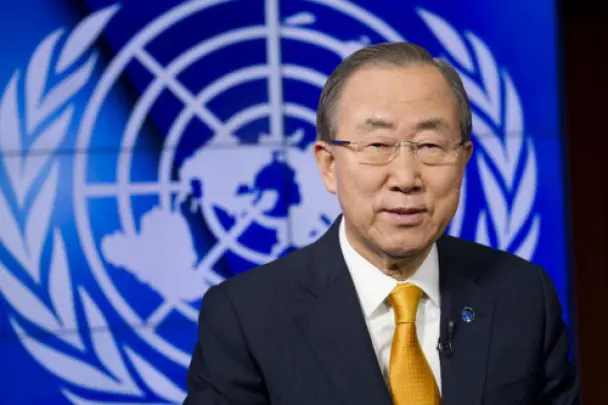Recent nuclear talks between Iran and the world powers over the country's nuclear issue have been " steps forward," Iran's President Hassan Rouhani said here on Monday.
"Although in the recent nuclear talks we could not finalize a comprehensive deal, I could say that forward steps have been taken in the run-up for a final agreement," Rouhani said in an interview with the state IRIB TV following Iran's agreement with the world powers in the Austrian capital of Vienna on Monday to extend nuclear talks for another seven months.
"Today, the situation is totally different from three months ago, or six months ago. Logics have come closer to each other and most of the differences have been removed," he said, adding that " however, there are some steps and some routes to be taken" by both sides of the negotiations.
The most important achievement of Iran talks in Vienna was the common understanding that negotiations, instead of exerting pressure, are the only way to a final deal, he added.
After seven days of intensive nuclear talks which failed to meet the deadline for a comprehensive deal over Tehran's controversial nuclear program, the foreign ministers from the Islamic republic and the P5+1 group agreed on Monday to extend the deadline of nuclear talks to July 1 next year in an attempt to secure the prospects of a deal.
Based on the agreement, the interim Geneva deal, or the so- called Joint Plan of Action, sealed on Nov. 24, 2013, will also be extended by July 1, 2015, an Iranian nuclear negotiator told official IRNA news agency, adding that the talks will resume in the near future during the extended period.
Rouhani said Monday that "We are following two objectives in the nuclear talks, one is to preserve nuclear technology and the other is removal of the sanctions" against the country.
Iran did not stop the rotation of the centrifuges and the work on nuclear technology after the interim nuclear deal in November 2013, the Iranian President said.
Besides, the world has been convinced today that adopting sanctions to pressure Iran were not the right decision, and they have also accepted that Iran can enjoy the nuclear technology, including the uranium enrichment program on its soil, he said.
On Monday, U.S. Secretary of State John Kerry told reporters that after one week of difficult talks, parties involved decided to extend Iran nuclear talks for seven months.
Nuclear experts for the negotiating sides will meet again in December to discuss the tough Iranian nuclear issue, aiming at an political deal within four months, Kerry said.
Speaking at a press conference in Vienna, he said sides had achieved "real and substantial progress" over the Iranian nuclear issue in the past negotiations, which lays foundations for further talks in the next months.
"These last days in Vienna, we have made real and substantial progress, and we have seen new ideas surface," he added.
Kerry stressed that even the talks are not finalized "the world is safer than it was just one year ago." Still, there are significant issues to be resolved, he said.
West wants Iran to reduce its uranium enrichment capacity as well as lowering the number of centrifuges considerably. In the meantime, Iran insists on lifting the sanctions by the UN Security Council and the West at once.
An interim deal signed in Geneva last November demanded Iran suspend some sensitive nuclear activities in exchange of limited sanction relief to buy time for the diplomatic effort to resolve issue.
In July, after months of intense talks, negotiators gave themselves four more months until November 24 to strike a deal to scale down Iran's nuclear activities.
Monday agreement provided further time and space for a framework deal by March 1 and a full agreement including all technical aspects by July 1. Enditem
 简体中文
简体中文

